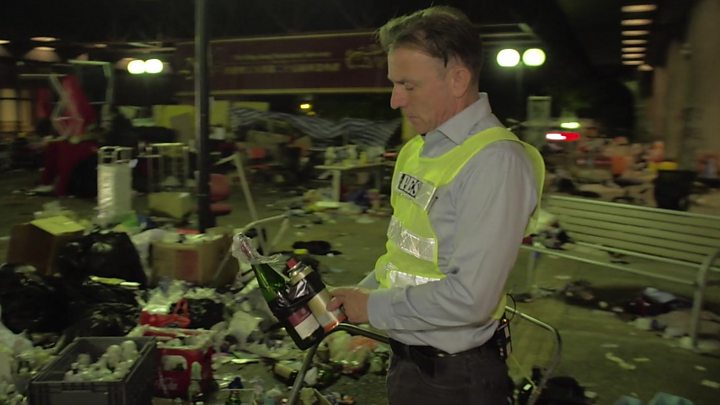
Media playback is unsupported on your device
A four-day siege of Hong Kong's Polytechnic University (PolyU) is nearing an end, although dozens of protesters remain inside.
Around 800 to 900 protesters have already left the campus, hundreds of whom were under 18, police said.
The campus - which turned into a fiery battleground during the past week - is surrounded by police who are arresting for rioting any adults trying to leave.
Some are too scared to leave as a result, leaving them trapped inside.
The campus siege has been one of the most dramatic confrontations in the wider protest movement that has paralysed the city for more than five months.
Triggered by a now-withdrawn controversial bill, the movement has at its root a fear - especially among young people - that their unique identity is under threat from China.
Hong Kong is a part of China, but as a former British colony enjoys freedoms not seen on the mainland.
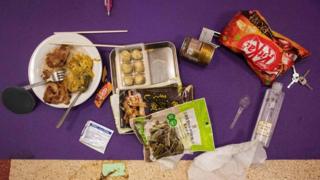 Image copyright
Getty Images
Image copyright
Getty Images
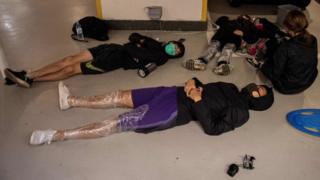 Image copyright
Getty Images
Image copyright
Getty Images
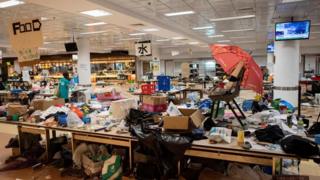 Image copyright
Getty Images
Image copyright
Getty Images
Meanwhile, the US Senate has passed a bill which could strip Hong Kong of its special trade status if it fails to uphold democracy and human rights - though it still needs approval from President Donald Trump.
The bill was swiftly condemned by China, which accused the US of "blatantly" interfering in Hong Kong affairs.
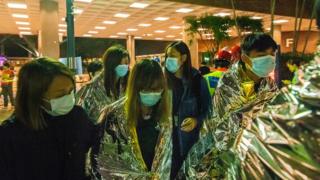 Image copyright
Getty Images
Image copyright
Getty Images
What has been happening in PolyU?
PolyU has over the past week become a fiery battleground between protesters and police officers.
Police have fired tear gas and rubber bullets in and around the campus, while protesters have thrown petrol bombs and bricks from makeshift sling-shots, and fired arrows from bows.
The protesters have been camping inside the campus, using it as a fortress, but many are hungry and cold.
One pro-democracy lawmaker who visited the university on Tuesday said he did not think supplies could last another day.
Over the past few days, a stream of protesters have been trickling out, surrendering to police or as part of medical evacuations. Some have eye injuries and hypothermia.
School headmasters, politicians and religious leaders have gone in to convince many to leave.
Others have tried to avoid police detection, making desperate escape attempts.
On Monday night, some climbed down ropes from a bridge, escaping on motorcycles that were waiting on the road underneath.
Some even unsuccessfully tried to make their way out using the sewers. Those captured by police were arrested.
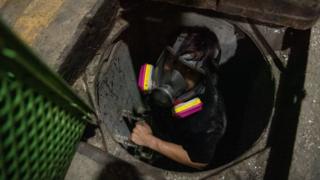 Image copyright
Getty Images
Image copyright
Getty Images
How many people have been arrested?
Police arrested around 1,100 people in and around PolyU on Tuesday alone, they said at a late night briefing.
Those under 18 had their particulars noted down but were not immediately detained.
Those over 18 were arrested. They could be charged with rioting, which carries a penalty of up to 10 years in prison.
Hong Kong's Hospital Authority said 325 people, aged 15 to 66, were injured and sent to hospital on Tuesday. One is in critical condition.
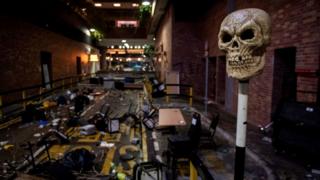 Image copyright
Getty Images
Image copyright
Getty Images
Why are people protesting?
The protests started after the government planned to pass a bill that would allow suspects to be extradited to mainland China.
Many feared this would undermine the city's freedoms and judicial independence.
The bill was eventually withdrawn, but the demonstrations continued, having evolved into a broader protest against alleged police brutality, and the way Hong Kong is administered by Beijing.
Hong Kong is a former British colony but was handed back to China in 1997. It has rights not seen on the mainland including freedom of assembly and freedom of speech.
But the freedoms enshrined in Hong Kong's mini constitution - the Basic Law - expire in 2047 and it is not clear what Hong Kong's status will then be.
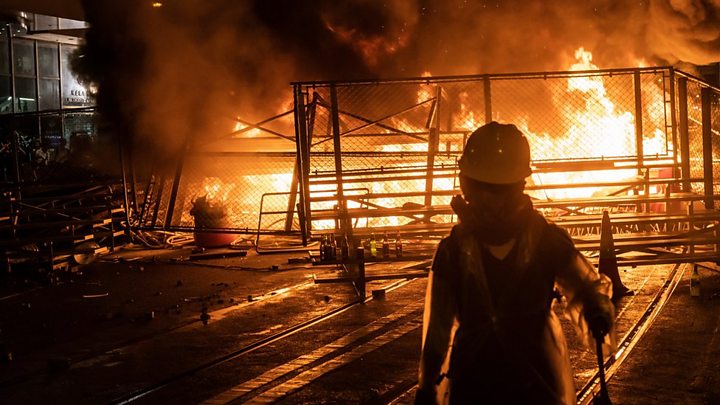
Media playback is unsupported on your device
All images copyright.
